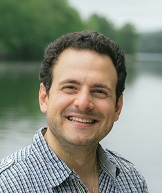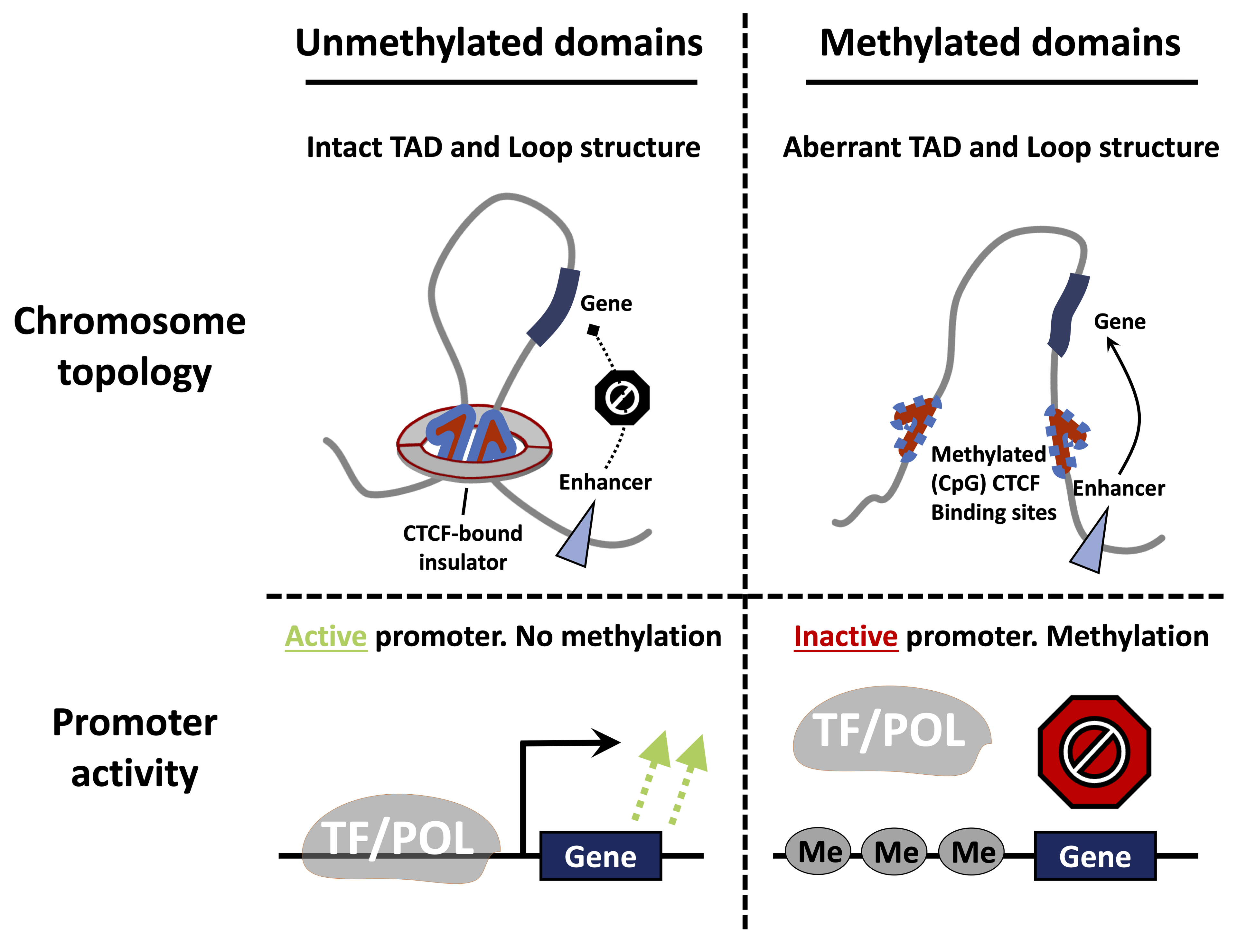


Proper gene regulation is a major driver of cell identity and homeostasis, allowing normal cells that share the same genomic DNA to differentiate into completely different cell types, contributing to organismal biology. Perturbations that affect gene regulation can lead to developmental abnormalities and pathologies including tumorigenesis and tumor progression. Alterations of the epigenome, the collection of chemical modifications to DNA or DNA-associated proteins, are a major driver of gene regulation.
 One example of an epigenetic alteration is promoter methylation which inhibits binding of activating transcription factors (TFs) to promoters, leading to gene silencing. Another example of an epigenetic alteration is the methylation of CCCTC-binding factor (CTCF) insulator sites which disrupt CTCF binding. These sites define the 3-dimensional shape the genome (chromosome topology) by dictating the boundaries of topologically associated domains (TADs), so-called insulated neighborhoods of the genome. Enhancers and promoters can interact when located in the same TAD but are restricted from interacting across different TADs. Methylation of CTCF sites opens TAD domains and allows aberrant enhancer-promoter interactions to take place, affecting gene expression.
One example of an epigenetic alteration is promoter methylation which inhibits binding of activating transcription factors (TFs) to promoters, leading to gene silencing. Another example of an epigenetic alteration is the methylation of CCCTC-binding factor (CTCF) insulator sites which disrupt CTCF binding. These sites define the 3-dimensional shape the genome (chromosome topology) by dictating the boundaries of topologically associated domains (TADs), so-called insulated neighborhoods of the genome. Enhancers and promoters can interact when located in the same TAD but are restricted from interacting across different TADs. Methylation of CTCF sites opens TAD domains and allows aberrant enhancer-promoter interactions to take place, affecting gene expression.
Research in the Rahme lab focuses on alterations of the epigenome that can drive tumor pathologies. Our National Institutes of Health-National Cancer Institute (NIH/NCI) funded research is centered on a type of brain tumor called gliomas, of which a majority are driven by epigenome reprogramming. We specifically leverage mouse models as well as human tumor tissues and computational analyses to discover epigenetic lesions, computationally infer their driver potential, and then functionally demonstrate their role in tumorigenesis using in vitro and in vivo approaches. An example of our research can be found here.
Our work is generously supported by the NIH/NCI, the Renaissance School of Medicine, and the Stony Brook Cancer Center.
A complete list of publications can be found in HERE.
Gilbert J. Rahme, Ph.D.
Assistant Professor
Department of Pharmacological Sciences
Renaissance School of Medicine and the Cancer Center
Basic Sciences Tower 8-120
Stony Brook University
Office: 631-444-3085